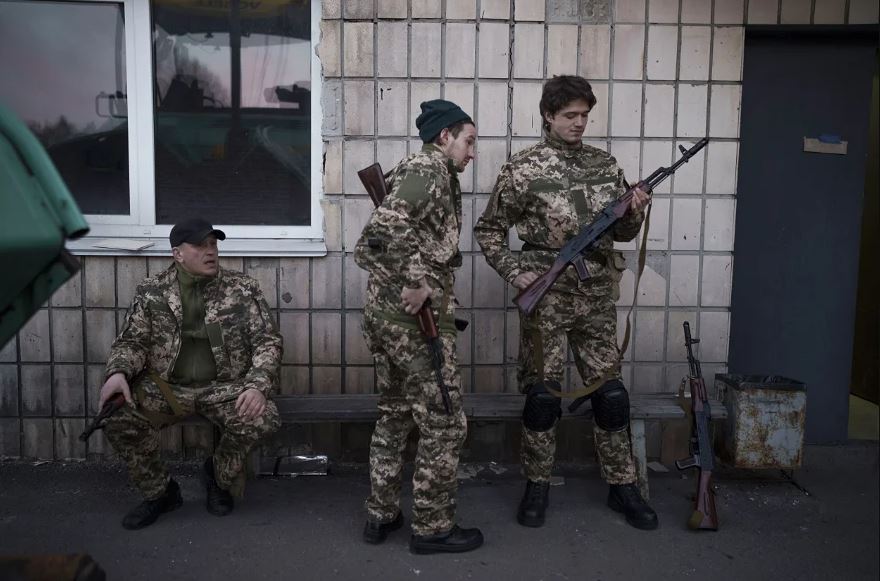Putin’s conflict in Ukraine is entering a new, perhaps more catastrophic phase after over a month of battle has left Russian soldiers unable to advance against an outnumbered adversary. He is faced with a series of difficult decisions, including how and where to resupply his depleted ground troops, whether to target the flow of Western weapons to Ukrainian defenders, and at what cost he will intensify or broaden the conflict.
In spite of his inability to secure a swift win, Putin has shown no signs of giving up despite rising international pressure, including economic sanctions that have savaged his country’s economy. Even while the Western world is mainly opposed to Putin, there has been little evidence that his popularity among the Russian populace, which depends mostly on state-controlled television for information, is waning.
Even as the invading army attempts to reorganise, Ukraine’s defenders, despite being outgunned and benefiting from years of American and NATO training as well as an increasing inflow of foreign armaments and moral support, are displaying fresh indications of confidence.
The Russian military’s failures in Ukraine may have been the most shocking development of the conflict so far. Putin’s troops have shown to be ill-prepared, poorly organised, and shockingly implacable after two decades of modernization and professionalisation. Russian army casualties are not known in detail, but NATO believes that between 7,000 and 15,000 Russian soldiers have perished in the first four weeks of the conflict, which might be equivalent to the number of Russian soldiers killed in a decade of combat in Afghanistan.
Although it is impossible to accurately predict battlefield patterns from afar, some Western officials believe they have seen potentially important developments in recent months. According to Air Vice-Marshal Mick Smeath, the British military attaché in Washington, British intelligence believes that Ukrainian troops have retaken two towns west of Kyiv, the capital.
As a result of fierce Ukrainian opposition, Russian soldiers have resorted to bombarding urban areas, but have made little headway in taking the major prize – the Ukrainian capital of Kiev. Russian forces have been digging in at defensive positions outside of Kyiv, rather than trying to advance on the city, according to reports from the Pentagon on Wednesday. In some instances, the Russians have lost territory in recent days, according to the Pentagon report.
Some U.S. military experts predicted that Putin would be able to conquer Kyiv in a short period of time — maybe as little as a few days — and that he would be able to break the Ukrainian military within a couple of weeks of launching his attack on the country. Putin, too, could have anticipated a swift triumph, considering that he did not launch the majority of his pre-staged soldiers, which are believed to number more than 150,000, into battle in the first few days of the conflict. His air force, on the other hand, did not establish itself. He has only made limited use of electronic warfare and cyberattacks, according to the available evidence.
According to John Kirby, the Pentagon’s press secretary, Ukrainian soldiers have began launching counter-offensives in a number of locations. The Ukrainians, on the other hand, face an uphill struggle even as the United States and its allies speed and extend a flow of essential weaponry and equipment, including anti-aircraft missiles and armed drones, into their country. Ukraine would be provided with longer-range air defence systems, as well as anti-ship missiles, according to President Joe Biden. He authorised a fresh $800 million weaponry agreement for Ukraine last week, which was expected to be completed this month.
A retired Air Force general who served as NATO’s top commander in Europe from 2013 to 2016 and is now a Europe specialist with the Middle East Institute says Ukraine may not win the war outright, but the outcome will be determined by what Zelenskyy is willing to accept as part of a negotiated settlement with the Russian Federation.
Putin’s long-term objective of reversing the security system that has prevailed in Europe since the Cold War and the Soviet Union’s disintegration in 1991 is now in jeopardy as well, given the uncertainty surrounding the war’s result. Putin has demanded that NATO deny membership to Ukraine and other former Soviet governments such as Georgia, and that the organisation reduce its military presence in Eastern Europe to levels that existed previous to the alliance’s expansion into the region.
Concerns across Europe have been raised about the possibility that Putin, through miscalculation if not deliberate action, could escalate the conflict by using chemical or nuclear weapons in Ukraine or by attempting to punish NATO member states for their support for Ukraine by attacking them militarily have been overshadowed by the human tragedy unfolding there.
Keeping this threat in mind, the United States and other allied countries have begun assembling combat forces in Bulgaria and other Eastern European NATO countries — not to directly enter the war, but to send Putin the message that if he decides to broaden his campaign, he will face allied opposition in the process.

